Symposium's organization > Scientific committee
SCIENTIFIC COMMITTEE
The scientific committee is made up of leading figures in the international open science movement. In line with the values promoted by IRD and CIRAD, the choice of speakers will be made with a view to gender parity.
|
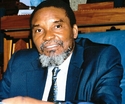
|
Norbert Hounkonnou : Scientific committee chairman (Academy of Sciences, Arts and Letters of Benin, Benin)
Mahouton Norbert Hounkonnou is a full Professor of Mathematics & Physics at the University of Abomey-Calavi, Benin Republic. His works deal with noncommutative and nonlinear mathematics, and complex systems. He serves as member and associate editor of editorial boards for renowned journals and book series in mathematics and mathematical physics, including the Editorial Boards of Mathematics in Mind, Springer, Fields Cognitive Science Network, the Peer Community In (PCI) Neuroscience, etc. His membership extends to InterAcademy Partnership Advisory Committee and Science Education Programme (IAP SEP), the International Association of Mathematical Physics, American Mathematical Society, London Mathematical Society, Society for Industrial and Applied Mathematics (SIAM), Academy of Science of South Africa (ASSAf), African Academy of Sciences (AAS), The World Academy of Sciences (TWAS), Scientific Council of the Centre International de Mathématiques Pures et Appliquées (CIMPA), as well as other renowned learned societies. He is the current President of the Network of African Science Academies (NASAC), former President of the Benin National Academy of Sciences, Arts and Letters (2015-2020).
Institutional personal webpage
|
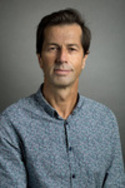 |
Jean-Christophe Desconnets : Scientific committee coordinator (Institut de Recherche pour le Développement, France)
Jean Christophe Desconnets is a research engineer at IRD. He is a geomatician in the joint research unit ESPACE-DEV. He has two complementary skills. The first is a competence in water sciences (PhD in water sciences, University of Montpellier, 1994) and the other in computer science (MSc in computer science, University of Montpellier, 2000). From 2018 to 2020, he led the scientific mission "Digital Infrastructures and Data" at IRD. Currently, director of the IRD Open Science mission, his role is to coordinate the implementation of the institute's open science policy. He also participates in the technical direction of the national research infrastructure Data Terra for which he brings his expertise in interoperability. Finally, from 2019 to 2021, he piloted the "generic service for hosting and disseminating simple data" working group on behalf of the MESRI Open Science Committee.
Institutional personal webpage
|
|

|
Pascal Aventurier (IRD, France) : Scientific committee coordinators
Pascal Aventurier holds a DEA in information science from the University of Grenoble II and a master's degree in mathematics applied to social sciences from the University of the Sorbonne in Paris (ex Paris VII). He is in charge of the scientific information department of the IRD (Institut de Recherche pour le Développement) which counts 15 people and implements the open science policy of the IRD in terms of publications and research data. He is also coordinator of the ANR Bridge project on interoperability, FAIRisation and governance of research data between three research organizations (2019-2022). He is an open science expert for Knowledge Exchange as well as an open science expert in the REISO of the Ministry of Higher Education, Research and Innovation. In Brazil, he participates in the research group of the DRIADE network on preservation and archiving of digital data - IBICT (Brasilia) and the CINDLAB network (open science and science with and for society). Finally, he teaches research data management since 2013 at the University of Montpellier and other institutions.
Institutional personal webpage
|
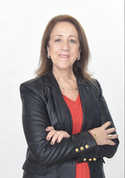 |
Rajâa Cherkaoui El Moursli (Université Mohamed V, Maroc)
Prof. R. Cherkaoui El Moursli received her PhD in Nuclear Physics at the University Joseph Fourier in Grenoble, France. Early 1982, she joined the Faculty of Sciences, University Mohammed V, Rabat as a research-professor. Later in 1996 she was serving as a head of the Laboratory of Nuclear Physics. Dr. Cherkaoui had implemented several master’s degree programs at the university, in particular, the First Master's Program in Medical Physics in Morocco. She became Vice-President for Research of UM5 (2013-2017). She was part of the official Morocco's forerunners participants in the ATLAS collaboration at CERN in Geneva in 1996. In 2015, she received L’Oréal-UNESCO award for “Women in Science”. Besides that, she also assigned as resident member at the Hassan II Academy of Sciences and Technology and a Fellow of the African Academy of Sciences. In 2016, she was appointed a member of the Management Board of the Moroccan Agency for Nuclear and Radiological Safety and Security and a member of the Scientific Committee of the Spanish Foundation "Women In Africa". She was honored in 2017 by the Organization of Islamic Cooperation. In 2018, she was assigned as a member of the International Awards Jury in the Physical Sciences for the L'Oréal-UNESCO Awards for Women in Science. The same year, she was appointed a member of the World Academy of Sciences for the advancement of science in developing countries and a Member of the Management Board of the Moroccan Center for Nuclear Energy, Science and Technology. In 2019, she was elected Vice-President for Policy Review and Administration of the board of the Network of African Science Academies.
|
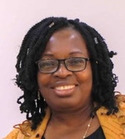 |
Cécile Coulibaly (Université Virtuelle de Côte d'Ivoire, Côte d'Ivoire)
Coordinating the technical activities of the digital library for the Higher Education and Scientific Research in Côte d’Ivoire, launched in 2016 and under the supervision of the Université Virtuelle de Côte d’Ivoire (UVCI), Cecile is deputy director in charge of the scientific commissions since 2017. Through The “Open Access Week Côte d’Ivoire", an initiative instituted in 2018, Cecile is leading activities for the implementation of open access, open science and open research. Member of LIBSENSE for open science in Africa, Cecile is working with WACREN as focal point on the national roadmap project with WACREN which was the key reason of the National Symposium for Open Science, a preconference of the 7th WACREN’s Annual Conference, held in Abidjan from 25 to 29 April 2022. She is a new member of the OER francophone working group for the implementation of the UNESCO’s Recommendation on OER.
|
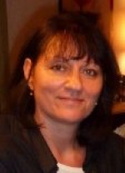 |
Sophie Fortuno (Cirad, Directorate-General for Research and Strategy, France)
Sophie Fortuno has been in charge of open science and research data at CIRAD since September 2020. A research engineer in computer science, Sophie Fortuno joined CIRAD's TETIS laboratory in 2013 (2013-2020). Her main activity is related to the field of Information Science, working on Open Research Data, Data Science and Information Retrieval. From 2013 to 2018, she coordinated the Digital Scientific Heritage project on CIRAD data and led the research data warehouse project of the institution. She is an expert member of the Collège données de la recherche du COmité pour la Science Ouverte du MESRI (2018 to 2020). Previous professional activities: From 2003 to 2013, Sophie Fortuno was responsible for the deployment of institutional NICT projects within CIRAD's Information Systems Department.
Institutional personal webpage |
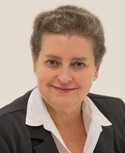 |
Irvy Gledhill (University of Witwatersrand, Afrique du Sud)
Irvy (Igle) Gledhill is Visiting Adjunct Professor in Flow Physics at the University of the Witwatersrand. She undertook research in plasma physics for her PhD at the University of Natal, South Africa, and at the University of California, Los Angeles, and at Stanford University. She specialised in transonic computational fluid dynamics at the Council for Scientific and Industrial Research of South Africa, and also contributed within collaborations including rational drug design, ocean engineering, and mine safety. She is a Past President of the South African Institute of Physics, and chaired the International Union of Pure and Applied Physics Working Group 5 on Women in Physics. She is the current Vice-President for International Relations and Scientific Affairs of the Network of African Science Academies (NASAC). She has been active as a member of the drafting team of South Africa’s Open Science Policy.
Institutional personal webpage
|
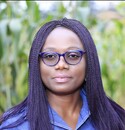 |
Justine Germo Nzweundji (Institute of Medical Research and Medicinal Plants Studies, Cameroun)
Dr NZWEUNDJI Justine Germo is a Plant Biotechnologist and researcher at the Institute of Medical Research and Medicinal Plants Studies (IMPM)/ Ministry of Scientific Research and Innovation, Cameroon. Her research interest is tissue culture of medicinal plants for better domestication and production of secondary metabolites. She received the prestigious fellowship Unesco-l’Oréal for her PhD research in US at Tropical Research and Educational Center, University of Florida in 2011 and at Alabama A&M University in 2013. She received many grants and prizes and in 2015 the prize of the best junior researcher of IMPM. Since 2017, she is a member of the steering committee INGSA-Africa. She also has been involved in training and supervising many students for their internship and their Master’s Thesis. In early 2018, she received a postdoctoral research fellow at Geisenheim Hoschule University in Germany through TWAS-DFG. She is a cohort 5 of the African Science Leadership Programme 2019. And also the 2022-2023 cohort of the University of Michigan African Presidential Scholars (UMAPS) Program. She is actually the President of the Cameroon Academy of Young Scientists and member of the Global Young Academy, co-lead of Science advice working group. She is editor of Scientific African (Elsevier) and Co-Editor of book ‘’Responding to disease outbreak in Cameroon: Lessons from COVID-19’’ to be published by Rüdiger Köppe (Germany).
Institutional personal webpage
|
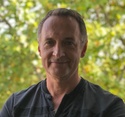 |
Hadi Quesneville (INRAE, France)
Hadi Quesneville received his PhD in bioinformatics from Pierre and Marie Curie University (UPMC). After working as a lecturer at the UPMC and in a CNRS joint research unit, Hadi Quesneville joined INRA in 2007, as a research director and director of the Genomics-Info research unit (URGI) specialized in plants and their pests. He then dedicated his research career to genome analysis, and more particularly to what is not yet properly annotated, the mobile genetic elements, to study their evolution and functional impacts. With his team, he developed software and databases to analyze them. He has also been involved in the construction of information systems. In particular, he set up the international "wheat" portal, WheatIS, built under the aegis of the Wheat initiative. Thanks to his multidisciplinary profile, he was appointed, on May 1, 2020, as Algorithms and Codes Data Administrator for INRAE (ADAC). His missions are divided into three axes around the data: their governance, their development and the acculturation of the scientists of the institute to it. He is the referent on the subjects dealing with scientific data at INRAE at the national and international levels.
Institutional personal webpage
|
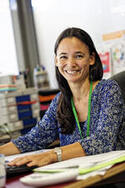 |
Annelise Tran (Cirad, France)
Annelise Tran is a researcher at the Centre de coopération Internationale en Recherche Agronomique pour le Développement (CIRAD), within the Territoires Environnement Télédétection et Information Spatiale (TETIS) Joint Research Unit. After training as a physics engineer specialising in signal and image processing, she obtained a PhD in Earth Sciences from the University of Strasbourg and joined CIRAD in 2004. Her current research focuses on the applications of remote sensing and spatial modelling in ecology and epidemiology. She runs the Centre d'Expertise Scientifique (CES) "Risques Maladies Infectieuses" of the Pôle de données et de services surfaces continentales Theia, which aims to facilitate the use of Earth Observation images.
|
|












